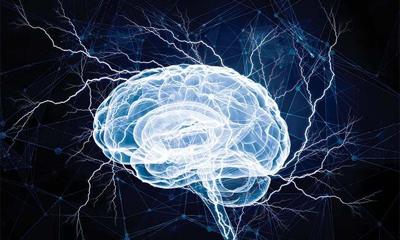(Family Features) For generations, America’s veterans have borne not only the visible scars of battle but also the hidden wounds of war. Post-traumatic stress disorder (PTSD), depression, traumatic brain injury and anxiety have long haunted those who served, often with devastating effects on their quality of life and their families. While traditional treatments have helped, many veterans continue to suffer in silence – left behind by a system struggling to meet their needs.
However, science is now reopening doors once closed, and therapies previously dismissed are being reconsidered with fresh eyes. Among them are psychedelic-assisted treatments, which have revealed potential in clinical trials to address the most severe mental health conditions afflicting veterans.
The FDA’s Role
Currently, the Food and Drug Administration (FDA) has approved only one psychedelic-based medication: a ketamine nasal spray to treat depression. However, other compounds are gaining the attention of researchers, clinicians and veterans alike. Psilocybin – the active ingredient in “magic mushrooms” – and a drug similar to LSD have both earned FDA “breakthrough therapy” status for their potential to ease depression and anxiety, sometimes after only a single dose.
In 2017, MDMA-assisted therapy was identified as a potential breakthrough treatment option for PTSD; ultimately, the FDA declined to grant full approval. This setback underscored not a failure of science, but the complexity of studying powerful compounds under existing regulatory frameworks. For veterans, it was a disappointment, yet it also spotlighted the urgent need for continued research and funding.
Veterans and Research at the Forefront
One compound has captured national attention: ibogaine, a psychedelic root traditionally used in ceremonies in central and west Africa. Early studies with special-operations veterans have found improvements in PTSD, depression, anxiety and overall functioning – especially for those living with the effects of traumatic brain injury.
Recognizing this potential, DAV (Disabled American Veterans) is championing these new approaches. At its 2025 National Convention, the organization hosted a groundbreaking psychedelics roundtable that brought together researchers, veterans, advocates and even a former NFL player to discuss the potential of psychedelic-assisted therapies.
The century-old organization supports research into these treatments, pointing out that traditional therapies can fail for as many as 60% of those who try them. It’s also advocating for the Department of Veterans Affairs (VA) to make psychedelic treatments available once they receive FDA approval.
“We are experiencing a watershed moment in medical research as psychedelic-assisted therapies have revealed true potential in clinical trials to treat severe mental health conditions,” said Barry Jesinoski, DAV’s National Adjutant. “This glimmer offers veterans contending with not only PTSD but depression, traumatic brain injury, anxiety and more hope in a world where the status quo is failing them.”
A New Mission
The promising results of these treatments spurred some states to commit funding toward research into psychedelic therapies or conduct legislative hearings to explore their role in advancing this science. The VA is now conducting studies on MDMA and psilocybin.
While more research is needed to fully understand their risks, benefits and best applications, for DAV, psychedelic medication represents both hope and responsibility. By advocating for rigorous research and ensuring veterans’ perspectives are central to the conversation, the organization is working to accelerate progress while safeguarding integrity.
Whether through psilocybin, MDMA, ibogaine or future discoveries, the mission is clear: fund the research, pursue the science and ensure America’s veterans are given every chance to heal. Learn more at dav.org.
Photo courtesy of Shutterstock








